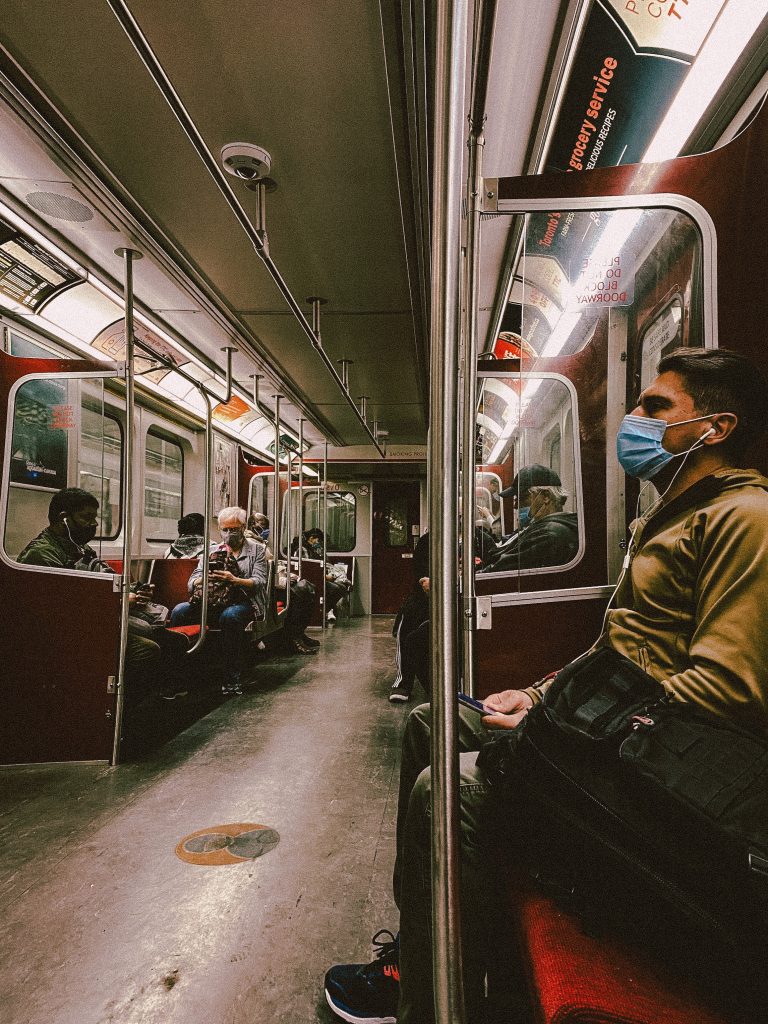

Results of “Wave 2” of the Public Transit and COVID-19 Survey of Toronto and Vancouver are shared in “Who’s Back, Who’s Coming Back, and Who’s Left For Good? Results from Wave 2 of The Public Transit and COVID-19 Survey in Toronto and Vancouver,” by Matthew Palm, Yixue Zhang, Jeff Allen, Brice Batomen, Steven Farber and Michael Widener, July, 2021.
During the survey’s first wave in May 2020, researchers at the University of Toronto Scarborough surveyed over 3,000 regular transit riders in Toronto and Vancouver on how COVID-19 impacted their travel and their ability to reach essential destinations like healthcare and groceries.
This second wave report analyzes results from a March 2021 follow-up survey of nearly 2,000 of the same respondents.
Summary of findings
Who returned to public transit during the pandemic?
- In May 2020, 63% of riders across both cities reported that they had stopped riding transit completely. By March 2021, 70% of these same respondents had returned.
- Only 24% of Toronto and 16% of Vancouver respondents stayed off transit completely over the 10-month period between survey waves.
- Number of transit boardings over the last seven days rose to 5.94 in March 2021, up from 3.6 in May 2020. This is still down from 17.23 pre COVID-19.
How have the wellbeing impacts of avoiding transit changed during the pandemic?
- 28% of respondents still find it harder to get to work while avoiding transit, down from 44% in May 2020.
- 29% still find it harder to reach healthcare without transit, down from 39% in May 2020.
- 19% find it harder to get groceries without transit, down from 22% in May 2020.
How much do riders anticipate riding transit again when COVID-19 is over?
- About 32% of respondents agree that they will ride transit less than they did before the pandemic began, compared with 56% who disagree and 12% who are unsure.
How has COVID-19 changed transit riders’ vehicle ownership and views on owning a car?
- 58% of respondents agree that COVID-19 has made owning a car more appealing, and 26% agree that they actually looked into buying a car in response COVID-19.
- 41% of respondents owned a vehicle in March 2021, up from 36% in May 2020. This represents a 14% increase.
Earlier survey results
Results of the first wave initial survey of 2,753 respondents in Toronto, “Preliminary Results from the Public Transit and COVID-19 Survey,” were released May 11, 2020. A first wave second survey was then deployed in Vancouver. Results from both surveys are examined in the article “Riders Who Avoided Public Transit During COVID-19: Personal Burdens and Implications for Social Equity,” by Matthew Palm, Jeff Allen, Bochu Liu, Yixue Zhang, Michael Widener, and Steven Farber, Journal of the American Planning Association, June 21, 2021.
Related content
- Will TTC riders return? Preliminary results for Public Transit and COVID-19 Survey
- Farber on protecting transit space for vulnerable riders
- COVID impacts on use of transit, ride-sourcing: Mashrur, Loa
